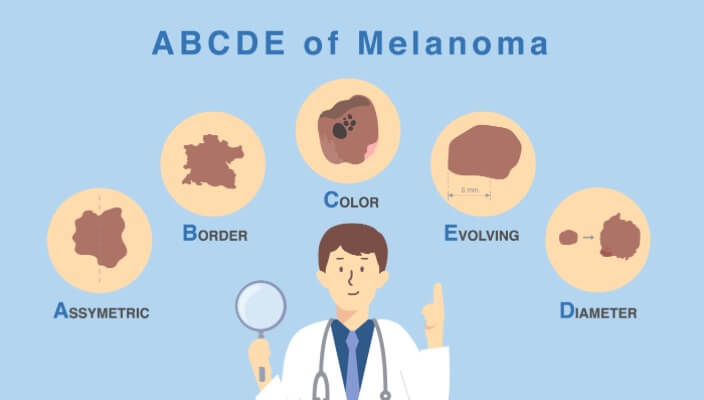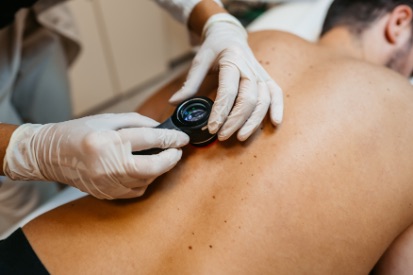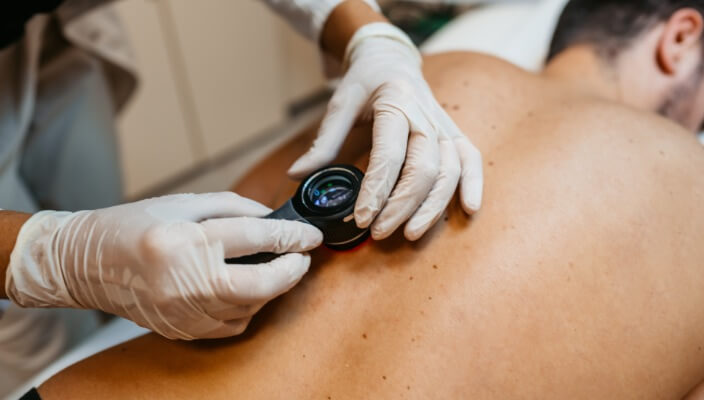Melanoma: The Most Dangerous Skin Cancer
Skin Cancer Cases Are Rising. Reduce Your Risk.
 With skin cancer cases rising year after year, it’s no surprise that people are itching to learn more about this life-threatening skin disease. One question we get quite often is which type of skin cancer is the most dangerous?
With skin cancer cases rising year after year, it’s no surprise that people are itching to learn more about this life-threatening skin disease. One question we get quite often is which type of skin cancer is the most dangerous? In this blog, we’re here to help you better understand the answer and how to reduce your chances of developing the specific type of skin cancer that is most likely to put your health at risk.
Which skin cancer is the most dangerous?
In a nutshell, the answer to this question is melanoma skin cancer. Though melanoma is low on the list of common skin cancers, it is highly invasive when left untreated and has the highest mortality rate out of all the other skin cancer types.
What is melanoma?
Melanoma is a type of cancer originating in the epidermis, otherwise known as the uppermost layer of skin. It develops in the melanocyte cells, which produce melanin to create the brown pigmentation in skin.
When melanocyte cells suffer from unrepaired DNA damage, often due to excessive exposure to ultraviolet (UV) rays, they become mutated and begin to reproduce out of control. This process of rapid cell reproduction is what we call cancer.
Melanoma in its localized form, meaning it has not spread from its original location, has a very high five-year survival: about 99 percent in the U.S.
Understanding the Dangerous of Melanoma
The dangers of this skin cancer significantly increase when it penetrates into the deeper layers of skin and spreads to other areas of the body. This is because the chances of curing a melanoma substantially drop once it spreads, or metastasizes, beyond the original tumor site.
In fact, the five-year survival rate for stage III melanoma is 62 percent and the five-year survival rate for stage IV melanoma is only 18 percent. Stage III melanoma is when it spreads to the lymph nodes and stage III melanoma occurs when it spreads to organs.
Top Treatments for Melanoma
Though melanoma treatments are improving year after year, there is no substitute for early detection. The best way to address melanoma is to stop it in its tracks before it ever has the chance to metastasize.
This is why board-certified dermatologists recommend patients perform monthly self-exams of their skin and schedule annual skin cancer screenings where a trained professional examines their skin for signs of skin cancer.
If skin cancer treatment is necessary, we will often recommend Mohs surgery for melanoma in its early stages. This is a precise technique that allows the surgeon to remove only the cancerous cells, preserving healthy skin.
When melanoma has spread to the lymphatic system or other organs, more comprehensive treatment is required. This often includes several surgeries, immunotherapy, radiation, and chemotherapy, among other forms of treatment.

Schedule Your Skin Cancer Screening at Keystone Dermatology Partners
If you are overdue for your next skin cancer screening or have never had one before with a board-certified dermatologist, it’s time to schedule yours today. At Keystone Dermatology Partners, we offer comprehensive skin cancer screenings to patients at our state-of-the-art dermatology clinics in King of Prussia and Philadelphia, PA.
Related Blogs

- Skin Cancer
- Skin Exams
In this blog, we’re covering what you need to know about five dangerous skin cancers, including basal cell carcinoma (BCC), squamous cell carcinoma (SCC), malignant melanoma, merkel cell carcinoma, and kaposi sarcoma.
Read More
- Skin Cancer
- General Dermatology
- Skin Exams
Navigating the landscape of Total Body Skin Exams: Uncover the comprehensive process, understand why it matters for skin health, and gain insights into what to expect during these essential dermatological examinations.
Read More
- Skin Cancer
- Skin Exams
Learn what to expect after a suspicious skin cancer screening and explore treatment options with expert care from Keystone Dermatology Partners.
Read More


